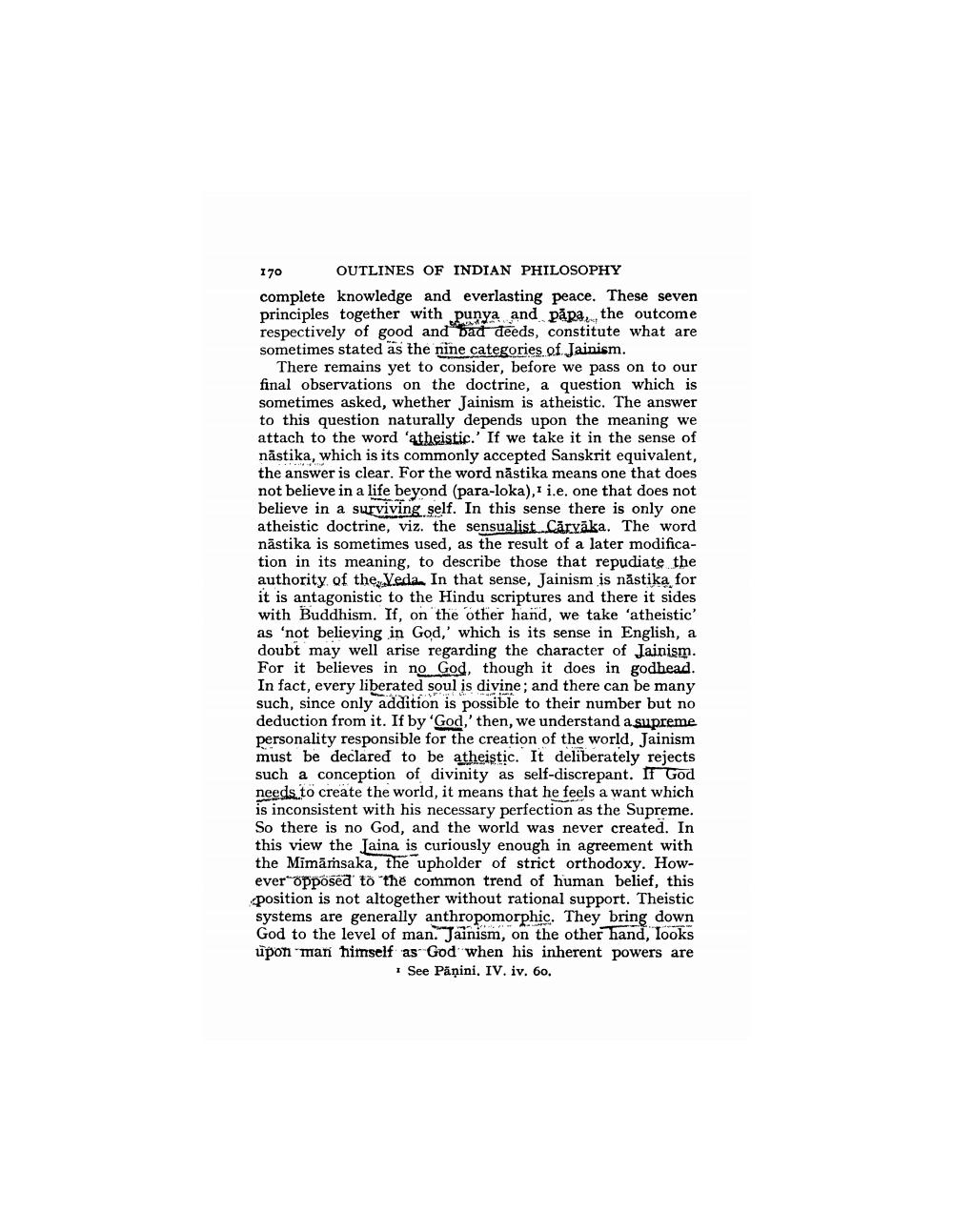________________
170 OUTLINES OF INDIAN PHILOSOPHY complete knowledge and everlasting peace. These seven principles together with punya and papa, the outcome respectively of good and bad deeds, constitute what are sometimes stated as the nine categories of Jainism.
There remains yet to consider, before we pass on to our final observations on the doctrine, a question which is sometimes asked, whether Jainism is atheistic. The answer to this question naturally depends upon the meaning we attach to the word 'atheistic.' If we take it in the sense of năstika, which is its commonly accepted Sanskrit equivalent, the answer is clear. For the word năstika means one that does not believe in a life beyond (para-loka), i.e, one that does not believe in a surviving self. In this sense there is only one atheistic doctrine, viz. the sensualist. Cärvāka. The word nästika is sometimes used, as the result of a later modification in its meaning, to describe those that repudiate the authority of the Veda. In that sense, Jainism is năstika for it is antagonistic to the Hindu scriptures and there it sides with Buddhism. If, on the other hand, we take 'atheistic' as 'not believing in God,' which is its sense in English, a doubt may well arise regarding the character of Jainism. For it believes in no God, though it does in godhead. In fact, every liberated soul is divine; and there can be many such, since only addition is possible to their number but no deduction from it. If by 'God,' then, we understand a supreme personality responsible for the creation of the world, Jainism must be declared to be atheistic. It deliberately rejects such a conception of divinity as self-discrepant. If God needs to create the world, it means that he feels a want which is inconsistent with his necessary perfection as the Supreme. So there is no God, and the world was never created. In this view the Jaina is curiously enough in agreement with the Mimārsaka, the upholder of strict orthodoxy. However opposed to the common trend of human belief, this position is not altogether without rational support. Theistic systems are generally anthropomorphic. They bring down God to the level of man. Jainism, on the other hand, Iooks upon man himself as God when his inherent powers are
* See Pāņini, IV. iv. 6o.




